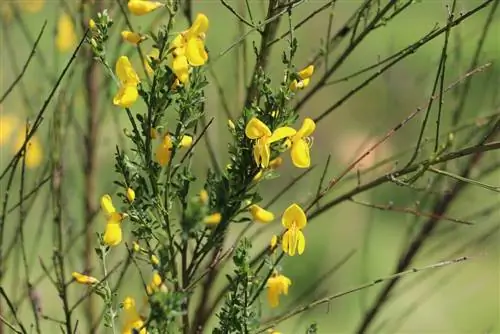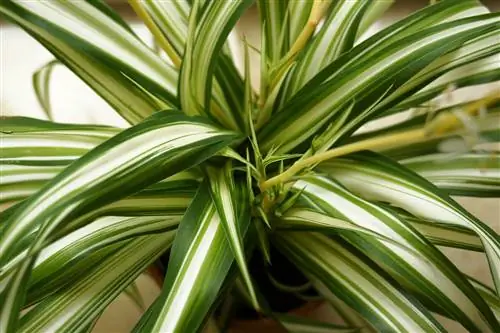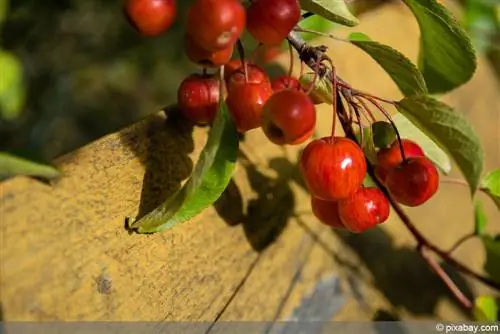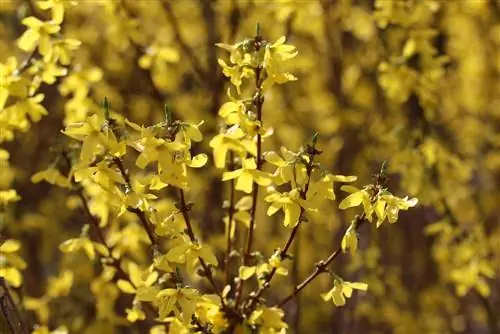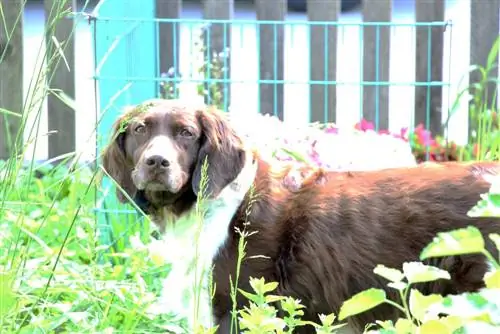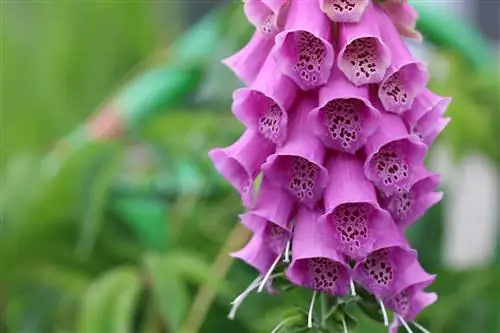- Author admin caroline@plants-knowledge.com.
- Public 2023-12-17 03:39.
- Last modified 2025-01-24 12:45.
First of all: Whether dyer's broom or broom, all types of broom contain alkaloids and therefore lead to serious symptoms of poisoning when consumed. If you still want to plant the attractively flowering plant in your garden, you should find out more about the risks and symptoms of broom poisoning. The composition of the alkaloids varies between the individual species, which does not change the fact that all gorse is poisonous and therefore dangerous for herbivorous pets, cats and of course babies and small children.
Even if the unpleasant taste of the plant actually precludes consumption, broom poisoning with severe circulatory problems and gastrointestinal complaints are not uncommon. Gardeners who plant gorse should identify the species exactly and find out about the effects and composition of the toxins before purchasing.
A tip for parents
It is better to avoid gorse for babies and small children, as you can never guarantee that your offspring will not be interested in the plant and possibly put parts of the plant in their mouths. The effect is much stronger on a child than on an adult, so that even marginal amounts of the alkaloid lead to the worst symptoms of poisoning.
Different gorse, different risks
Every broom contains alkaloids and therefore belongs to the category of poisonous plants. But the effects differ significantly, which means that you cannot generally assume that gorse is a toxin and a symptom. A few examples illustrate which type of gorse causes which symptoms of poisoning.
Broom
- Contains the alkaloid sparteine in leaves and seeds
- Sparteine is highly poisonous
- causes nausea, gastrointestinal complaints and circulatory collapse
Gorse, German Broom, Red Broom and Dye Broom
- Contain Cytisine
- which has a paralyzing effect on the body
- can lead to respiratory arrest
Since all brooms are highly poisonous plants, you as a parent and pet owner should at best decide against the plant completely. The same applies to golden rain, which also contains cytisine and, like gorse, can lead to paralysis, circulatory problems and respiratory failure.
Great danger to humans AND animals
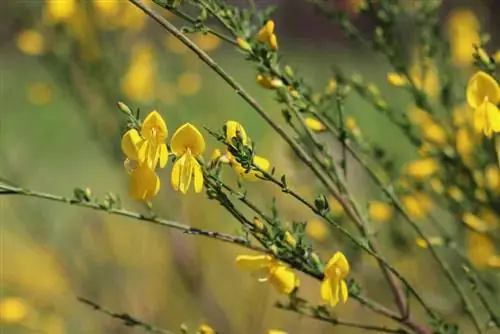
Why are gorse even planted in the garden when it is proven to be a poisonous plant? When in bloom, the gorse impresses with a charming aura that is very popular with gardeners. If handled correctly, which includes pruning and caring for the gorse with gloves, there is no risk of poisoning. However, as soon as the alkaloids come into contact with saliva and enter the stomach, the danger of the plant should not be underestimated.
Important information about the risk of poisoning from broom:
- Just 5-10 seeds will poison an adult.
- For children, a much smaller amount poses a great danger.
- Dogs, cats and rabbits can die from broom poison.
- Gross is poisonous to fish. Planting near the pond is to be ruled out.
- No planting near pastures or playgrounds.
Even if the seeds in particular are suspected of being the most toxic, the toxic content in the other parts of the plant should also be taken seriously. Elderly people and children as well as pets are particularly at risk due to their lower resistance, which means that the first signs of poisoning should not be taken lightly.
What should you do if you have broom poisoning?
An emergency doctor should be called immediately if you have nausea, vomiting, circulatory problems or paralysis and heart problems after contact with gorse. Increased salivation is a sign that occurs primarily when in contact with broom and can be a precursor to poisoning. If parents react immediately, particularly serious poisoning can usually be avoided.
Broom broom in particular is known to cause intestinal obstruction and unconsciousness when consumed. Prompt medical attention prevents the enormous risks of alkaloid poisoning and is the only correct action if you notice the first symptoms and assume that your child has nibbled on the gorse or touched the plant with his hands and then put his fingers in his mouth has.
The correct handling of gorse
Prevent the risk of poisoning by never touching gorse with your bare hand. Even though children and pets are particularly at risk, the alkaloid from the plant also has a negative effect on your he alth. All care measures are carried out with appropriate gloves so that you avoid direct contact with the gorse and do not run any risks.
Families and pet owners should generally consider whether the attractiveness of the plant outweighs the risk of poisoning or whether it would be better to avoid planting broom in general. There are no non-poisonous species, only differences in the effects of the toxic substances in the broom. The planting of the bushes is therefore always accompanied by the risk of becoming ill through contact or even contact with the alkaloids with saliva and experiencing one or more of the symptoms listed.
Don't choose poisonous plants where children play
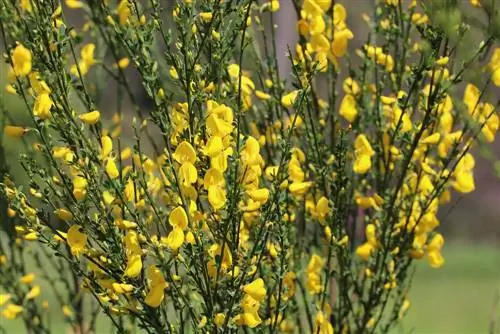
Surely the gorse doesn't need to be dramatized. However, you should not underestimate its toxic effects. If you don't want to go without gorse, it's best to wait until your children are a little older and understand your advice. Babies and small children in particular are at risk because they put the seeds and individual plant parts in their mouths and introduce the poison directly into the organism. To limit such risks, you can fence the shrub and prevent your child from picking a branch or collecting the plant's seeds.
Ultimately, as parents and pet owners, you are responsible for the he alth of your family. Only if you can rule out the risk of poisoning should you even consider having gorse in your garden. On small plots or right next to the house, near the children's play area or sitting area, gorse is generally a poor choice and increases the risk of poisoning.
Attention:
Not only children and pets, but also you as an adult are at risk! Therefore, think carefully about whether gorse is worth your heart's desire and the associated risk of poisoning.

